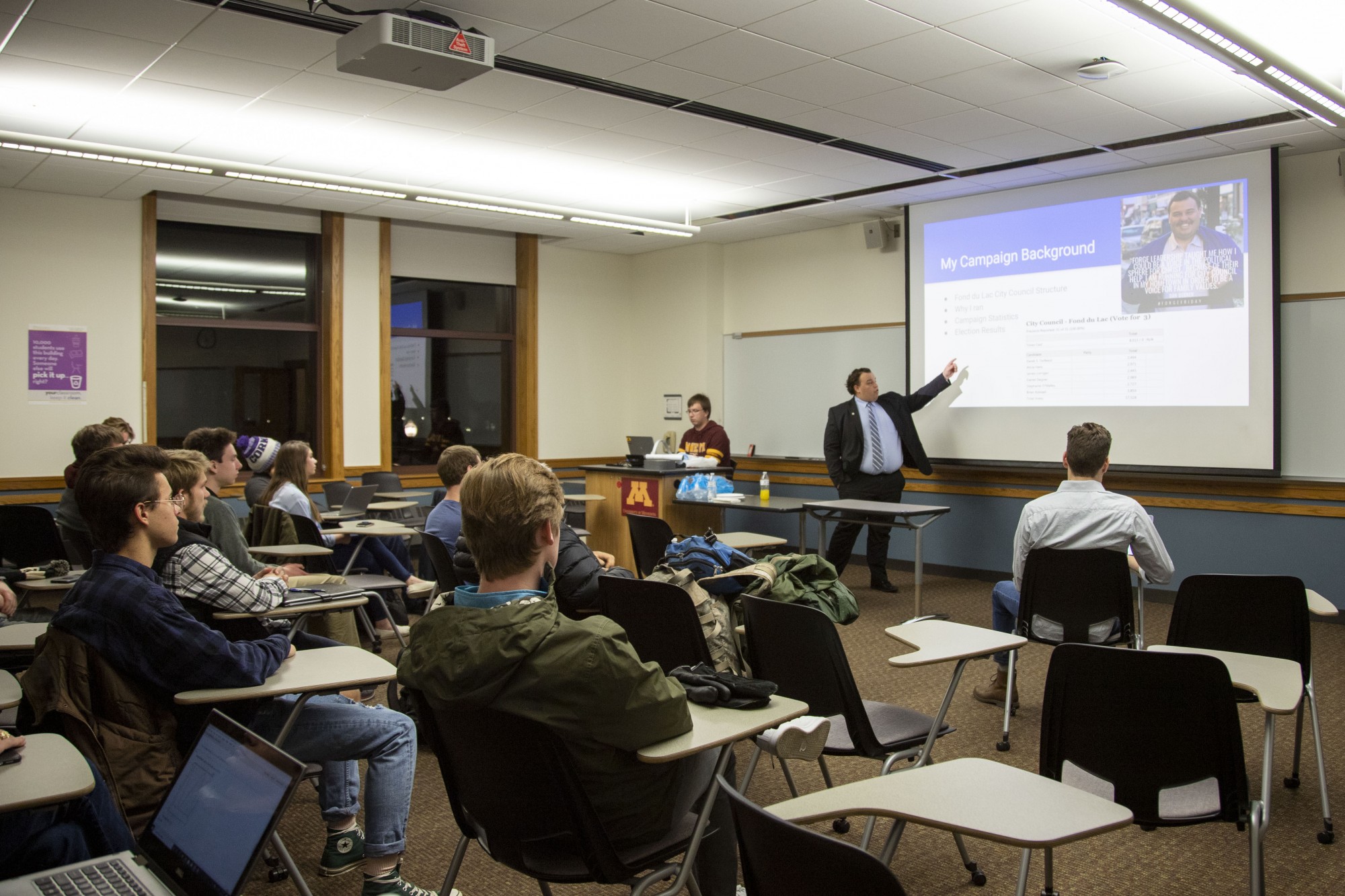Some conservative students at the University of Minnesota say they feel discouraged from voicing their opinions and getting involved on campus.
Campus data show students at the University are more likely to hear other students, staff and faculty express negative views on political beliefs than other other social identifying features. Some conservative students say they are hesitant to publicly identify their political beliefs and to get involved in certain spaces on campus.
At a closed Minnesota Students Association session on Oct. 22, College Republicans’ MSA representative Addison Scufsa said members discussed how conservative groups often don’t see MSA as a group they want to be involved in.
Scufsa said he feels the MSA agenda often holds some bias, noting that forum primarily hosts Democratic guest speakers and many resolutions brought forward do not reflect conservative views. He has been reaching out to conservative groups on campus to encourage more representation within MSA. However, he said it has been challenging to find students willing to take on the role.
“People are very hesitant to do things that would make them publicly known as conservatives on campus,” he said.
College Republicans President Nathan Harman said members of the group often come to meetings with stories of professors making anti-conservative comments. This feels discouraging, Harman said, and has made it difficult to encourage his peers to voice their political beliefs.
College Republicans member Jacob Halverson said he once had a professor spend a large amount of class time expressing discontent with President Donald Trump’s election.
Halverson said while he understands those beliefs, professors often assume all students have the same ideology, he said.
Thomas Fredrickson, MSA’s representative for the University’s chapter of Young Americans for Freedom, a political student group, noted that University students tend to lean left in general, which is reflected in MSA’s forum body.
This isn’t a problem, he said, as long as MSA is effective at representing students when it comes to campus-related issues like dining.
Harman said he would be pleased to see more conservative representation within MSA. Getting members more involved on campus has been one of his goals as College Republicans’ president, he said.
“Getting engaged with campus before, you know, we start bashing it for everything that we hate is something I would love to see going forward,” Harman said. “So whether it’s our own members attending as viewers or other conservative groups actually sending representatives, I think that’s key to earning our place on campus.”
He said he recently encouraged members to give feedback on the proposed gender expression and identity policy while it was in its 30-day comment period last month to get members more engaged on campus.
Another of Harman’s goals for College Republicans has been encouraging members to back away from the ‘us versus them’ mentality that is often prevalent between people with differing political ideologies.
“It’s not us versus the rest of campus. We are a part of campus,” Harman said.








